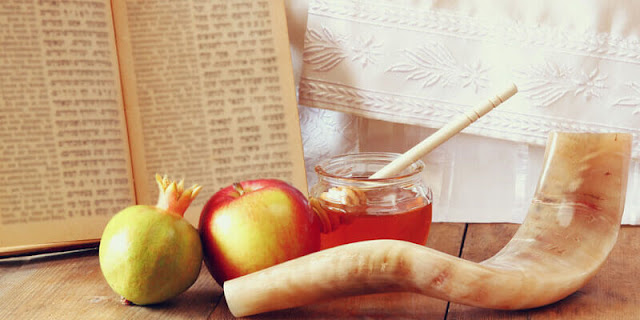Rosh Hashanah 2024, the Jewish New Year, will be observed from the evening of October 2nd until the evening of October 4th. This significant holiday marks the beginning of the High Holy Days or Yamim Noraim, which culminate in Yom Kippur, the Day of Atonement. Rosh Hashanah is a time for reflection, prayer, and celebration, with a focus on personal introspection and the renewal of one’s relationship with God.
The observance of Rosh Hashanah is rich with customs and traditions. One of the central elements is the sounding of the shofar, a ram’s horn, which is blown during synagogue services. The shofar blasts serve as a spiritual wake-up call, encouraging worshippers to repent and seek forgiveness for their sins. The shofar is traditionally blown 100 times over the two days of Rosh Hashanah.
Another important aspect of Rosh Hashanah is the recitation of special prayers and liturgy. The holiday services include the reading of the Torah and the recitation of the Machzor, a special prayer book used for the High Holy Days. The prayers emphasize themes of repentance, the sovereignty of God, and the hope for a good and sweet new year. The U’Netaneh Tokef prayer, which describes the Day of Judgment and the fate of humanity, is a particularly poignant part of the service.
Traditional foods also play a significant role in the celebration of Rosh Hashanah. Many families enjoy festive meals featuring symbolic foods that represent hopes for the coming year. Apples dipped in honey are perhaps the most well-known symbol, representing the wish for a sweet new year. Other symbolic foods include pomegranates, which are said to have 613 seeds corresponding to the 613 commandments in the Torah, and round challah bread, which symbolizes the cyclical nature of the year.
In addition to these customs, Rosh Hashanah is a time for personal reflection and making amends. Many people take the opportunity to seek forgiveness from others and to forgive those who have wronged them. This process of self-examination and reconciliation is a key aspect of the holiday and sets the tone for the ten days of repentance leading up to Yom Kippur.
Another significant tradition is Tashlich, a ceremony where individuals symbolically cast their sins into a body of water. Participants gather near a river, lake, or sea and recite prayers while throwing pieces of bread or other food into the water. This act represents the casting away of sins and the desire for spiritual renewal.
Rosh Hashanah also has a strong communal aspect, with families and friends gathering to celebrate and observe the holiday together. Synagogue attendance is high, and many communities host special events and programs to mark the occasion. The holiday fosters a sense of unity and shared purpose among those who observe it.
In preparation for Rosh Hashanah, it is customary for many Jewish people to engage in self-reflection and spiritual preparation during the preceding month of Elul. This period is seen as a time to prepare oneself for the upcoming High Holy Days through prayer, study, and acts of kindness.
Overall, Rosh Hashanah 2024 is a multifaceted holiday that combines elements of celebration, introspection, and religious observance. It provides an opportunity for individuals to start anew, strengthen their faith, and connect with their community. As the Jewish New Year approaches, those who observe it are encouraged to reflect on the past year, seek forgiveness, and set intentions for the year ahead.

